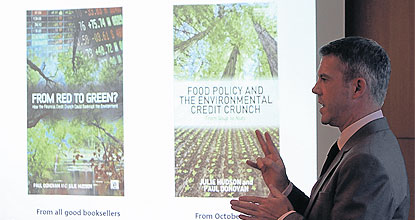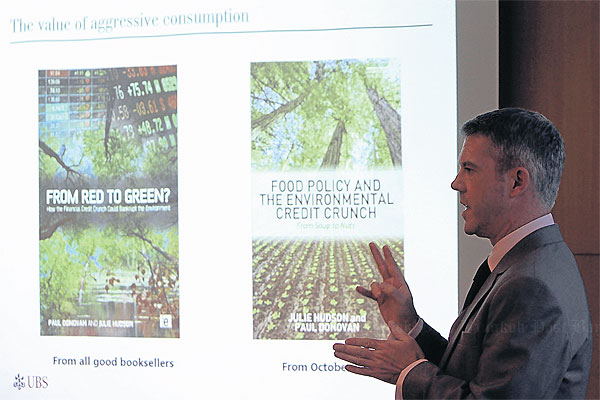
Bad loans, shouldered by state-owned specialised financial institutions (SFIs) in particular, are the key risk for the Thai economy in 2014, says Raymond Maguire, the head of research and strategy at UBS Thailand.

Tighter rural credit lending and the price pullback of the government’s rice pledging scheme will contribute to lower spending power for rural communities and low-end consumers, says Mr Maguire. PORNPROM SATTRABHAYA
"Two SFIs have already needed capital bailouts, but the good news is they are small and can be managed. That means this will not translate into a systemic risk or a banking crisis," he said, noting there is a tail risk to the bailout for the economy.
Mr Maguire is concerned about small and medium-sized enterprises and SFIs, as cooperative banks have lax lending standards and do not share their data with the National Credit Bureau.
"The banks that have been lending aggressively to low-end consumers are government banks or SFIs, and over the last three or four years they were lending to the poor at 25% a year but recently pulled back to 7%," he said.
The Islamic Bank of Thailand and the Small and Medium Enterprise Development Bank of Thailand are the SFIs struggling with high rates of non-performing loans (NPLs).
Mr Maguire said the government's controversial rice pledging scheme will slow growth for rural communities that have been benefiting from the policy.
Tighter rural credit lending and the price pullback of the government's rice pledging scheme will contribute to lower spending power for rural communities and low-end consumers, he said.
Despite strong criticism over potential hefty losses from the rice subsidy, the government is keeping the scheme with a few modifications. Under the current main crop, the government is keeping the pledged price at 15,000 baht a tonne for white rice, but the pledged amount is capped at 350,000 baht per farming household.
For the second crop, it will buy rice at 13,000 baht a tonne, with the pledged amount capped at 300,000 baht per household.
Domestic consumption remains a concern, as most of the accumulated debt is associated with low-end consumers.
Banks' NPLs are expected to increase, said Mr Maguire.
UBS predicts economic growth will reach 2.8% this year and 5.1% next year as exports and the global economy improve.